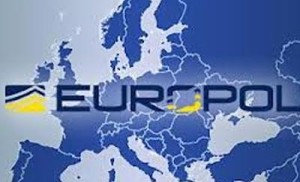
210 Suspects identified in one-week operation
 Between 14 and 20 September 2020, Europol supported two Europe-wide joint action days against human trafficking for labour exploitation. The operation, also supported by Frontex, involved a wide range of law enforcement authorities including police, immigration and border guards, labour inspectorates, tax authorities and other respective national ministries. Law enforcement authorities from 19 countries, led by the Netherlands, joined forces to target labour exploitation in sectors infamous for exploiting the vulnerable. At the same time, France led parallel joint action days, involving law enforcement authorities from six countries and focused on exploitation in the agricultural sector.
Between 14 and 20 September 2020, Europol supported two Europe-wide joint action days against human trafficking for labour exploitation. The operation, also supported by Frontex, involved a wide range of law enforcement authorities including police, immigration and border guards, labour inspectorates, tax authorities and other respective national ministries. Law enforcement authorities from 19 countries, led by the Netherlands, joined forces to target labour exploitation in sectors infamous for exploiting the vulnerable. At the same time, France led parallel joint action days, involving law enforcement authorities from six countries and focused on exploitation in the agricultural sector.
NAIL SALONS UNDER INSPECTION
Law enforcement authorities carried out inspections in nail salons with some of the investigations specifically targeting the possible exploitation of Vietnamese nationals. Officers also inspected other labour-intensive sectors, which require low-skilled workers, such as the transport and logistics industry and the construction sector. The joint efforts enable an integrated approach between different law enforcement and inspection authorities in the participating countries such as, for example, the simultaneous check of a company in three different countries (Belgium, France and the Netherlands). Overall, law enforcement officers in the 19 participating countries checked 2 921 locations, 33 741 people and 12 193 vehicles. This led to the identification of 535 potential victims and 193 suspects and the initiation of 606 new investigations. Participating countries: Austria, Belgium, Croatia, Cyprus, Denmark, France, Germany, Italy, Lithuania, Malta, the Netherlands, Poland, Romania, Slovenia, Slovakia, Spain Sweden, Switzerland and the United Kingdom.
224 FARMS AND VINEYARDS CHECKED
For the agricultural sector, criminals often recruit their victims in the victims’ countries of origin and take them to another country to make them work as modern-day slaves. Usually, the victims come from poorer regions and are coerced into working long hours for a low wage while their ‘employers’ do not pay them or let them travel back to their home countries. EU citizens are mostly exploited in the agricultural sector year-round, while non-EU citizens are employed in seasonal production. During the focused action days, law enforcement authorities checked 224 locations such as farms and vineyards, 81 vehicles, while 180 potential victims and 17 suspects were identified. Participating countries: Bulgaria, Cyprus, France, Italy, Portugal, Spain and the Netherlands. Europol coordinated the action days and facilitated the information exchange between the participating countries. Europol provided analytical and operational support 24/7 and facilitated the real-time exchange of communication between the participating authorities.





